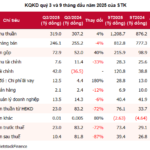
Impact on National Digital Transformation
Enhanced National Data Management: The Data Law will provide a clear legal framework, facilitating efficient data governance, handling, and exploitation. Shared data usage between government agencies, businesses, and citizens will ensure transparency, prevent duplication, and enhance the quality of online public services.
Developing Data Infrastructure: With the Data Law in place, the development of national data infrastructure, including the National Data Center and the Data Development Fund, will be strongly promoted. These infrastructures will enable the storage and processing of vast amounts of data, forming a solid foundation for building a digital government and improving state management and operational efficiency.
Streamlining Administrative Procedures: The utilization of digitized data will help reduce cumbersome administrative procedures, saving time and costs for both government agencies and citizens. The Data Law will drive the modernization of the public management system, aiming for a more transparent and efficient governance model.
Impact on the Digital Economy
Fostering Innovation and Business Development: With a clear legal framework for data, businesses will have more confidence in investing in technologies such as Big Data, Artificial Intelligence (AI), and the Internet of Things (IoT). These technologies will not only create new products and services but also open up robust growth opportunities for tech businesses, especially startups.
Strengthening Data Governance and Security in Enterprises: The Data Law mandates strict compliance with regulations on data governance and personal data protection by businesses. This safeguards customer privacy while bolstering trust in e-commerce, finance, and insurance transactions, which heavily rely on personal data.
Creating Opportunities for New Industries: The bill will stimulate the growth of data-related services, including data analytics, cloud storage, and data management. These fields are new yet highly promising, generating substantial economic value and employment opportunities for Vietnam in the evolving digital economy landscape.
Impact on Digital Society
Improving Information Access: The Data Law will facilitate convenient access to online public services for citizens, especially those in remote areas. This helps bridge the opportunity gap between regions, ensuring that all citizens benefit from the digital transformation process.
Cultivating a Digital Culture: Data becomes a transparent and publicly accessible resource, enabling all citizens to participate in and contribute to societal development. This forms the basis for building a modern digital society, where information and knowledge are widely shared and utilized effectively.
Enhancing Social Management Capabilities: The state can leverage data to better manage, monitor, and forecast social issues related to security, healthcare, education, and the environment. This enables the formulation of timely and appropriate policies, ultimately improving citizens’ quality of life and ensuring sustainable development.
Risks of Not Having the Data Law
Lack of a Clear Legal Framework: Without the Data Law, data management and usage may become disjointed and inconsistent. This could lead to data abuse or loss and make it challenging to control issues related to information security and individual privacy.
Difficulties in National Data Management: In the absence of a law, establishing shared databases among government agencies would be challenging, resulting in data dispersion and inconsistency in usage. This would impact the efficiency of economic and social development and management.
Falling Behind in International Competition: Other countries have already established clear legal frameworks for data management. If Vietnam fails to enact the Data Law promptly, it may encounter difficulties in international integration and fall behind in the competition with other nations in the digital economy and information technology services sectors.
In conclusion, enacting the Data Law is a necessary and urgent step to establish a robust legal foundation for the country’s digital transformation. The law will not only enhance effective data management but also unlock vast opportunities for the growth of the digital economy and society, ensuring Vietnam stays competitive in the increasingly intense global landscape.
Nguyễn Quang Huy – CEO Hitech Academy
“Data Management: The Key to Success for Banks Aiming to Soar”
Data is an invaluable asset for banks, and effective data management is key to their success. By harnessing the power of data, banks can gain a competitive edge and make significant strides in the market. With efficient data governance, they can stay ahead of the curve and achieve remarkable breakthroughs, leaving their competitors behind. It is imperative for banks to recognize the significance of data and utilize it strategically to drive their growth and maintain their market dominance.
The Local Real Estate Market: Where the Shortage Doesn’t Halt and the Surplus Doesn’t Sell.
“A thorough assessment of the local real estate markets is imperative to identify areas where there is a shortage of development and where there is an oversupply of properties that remain unsold.” This was one of the key messages conveyed by Deputy Prime Minister Tran Hong Ha during the Central Steering Committee meeting on housing policies and the real estate market, held on October 24th.
The Inefficiencies of Using Barcode Systems for Supply Chain Management
To enhance the effectiveness and efficiency of product quality management for businesses, it is essential to embrace the use of barcode technology and product traceability. By implementing this innovative approach, enterprises can significantly improve their processes and gain a competitive edge in the market.
The Art of the Dual Transformation: Insights from the Business Arena
The synergy between digital and green transformation is undeniable, and when these two forces combine, they create a powerful momentum for change. The dual transformation journey presents a unique set of challenges and opportunities for businesses, even those at the forefront. These challenges are not mere obstacles but catalysts for growth and development. While the cost of this dual transition is significant, the price of falling behind is far greater.













































